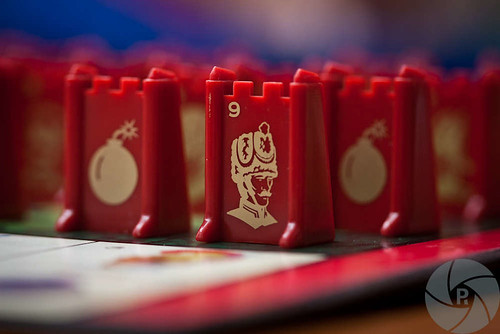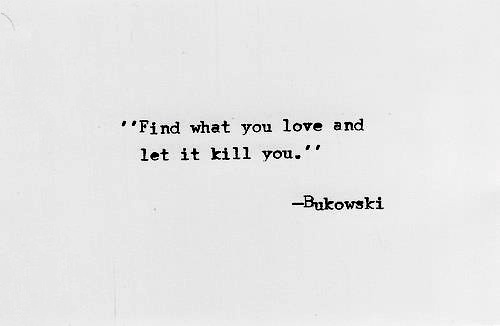One of the great things about a good productivity system is that it contains decision points where you can decide to keep or dismiss outdated tasks. If "buy Christmas cards" is on your list, and it's April, then you can probably safely delete that task and not miss it.

Not so with information. Dismissing old or outdated information is not often a step in casual information management. We tend to keep stuffing it into our storage systems because there are no obvious temporal or physical limits. So we invoke the "just in case" clause and the information debris silts up on the hard drive.
So what are some good, simple ways for managing the information I've decided to keep in my life?
Seth Brown's post on information processing helpfully provides a three-part structure for thinking about information management, which I've adapted below:
- Filtering incoming information
- Consolidating information
- Retrieving stored information
Here are some ideas I've run across that I've found the most useful, challenging, or memorable. Others are new to me as I've run across them in researching these posts. (Part 1 of this series contains my complete list of sources.)
I use (or will use or may use or sometimes use) a mix of these methods, depending on the context, the information, mood, energy, time, etc. Also, my workplace habits tend to be more rigorous than when I'm relaxing at home, for example.
Keep in mind, always:
- Less is enough
- You'll probably never refer to what you keep
- You won't have more time in the future to organize this stuff. Deal with it now.
Filtering incoming information
There is, of course, my spaciousness question, which can be helpful but is not a cure-all, especially at the office.
Keep it only if you need it now
If it's for a project you're currently working on, keep it. Otherwise, let it go.
If you're keeping it for a specific reason, create a bin for it: a folder, an envelope, a directory on your computer, etc.
Is it action or reference? How do you envision using it?
JD Meier has a great page from his online book Getting Results the Agile Way on managing information, from which I'm borrowing heavily. He recommends deciding whether this is information you need to take action on -- in which case, it goes into whatever productivity system you use -- or it's reference.
He also recommends creating a scenario (or in developer-speak, a use case) that helps you evaluate whether to keep the information or not. If you cannot imagine using the information to satisfy the needs of the scenario, then let the info go. You can always find it again later.
Adam Kayce is also a devotee of practical information processing. He suggests asking a similar question: When I need this information in the future, what will I be doing? Asking your brain a more sophisticated question like this kicks off the imaginative machinery that generates possible scenarios you can use to evaluate the new piece of information. If you can't see yourself actually using this information in the future, then you can probably safely let it go.
Ask: would I search for this on my own?
Tom Stafford explains the endowment effect and suggests asking a counteracting question. For objects you're considering throwing out, like a book or clothes: If I did not own this item, how much would I pay to obtain it?
And for information that is sent to him via email or other avenues, he asks: If I hadn't just been sent this link, how hard would I work to find out this information for myself?
Consolidating Information
OK, the information has gotten through your filters and you want to keep it. What next?
Create fewer, but bigger, bins
By and large, create as few folders as possible. But put more stuff in them. Don't spend too much time creating hierarchies of directories; keep the list flat, which makes them more scannable.
An IBM study on email use concluded it was better to use search across a few email folders than to create elaborate mail folders. (Well, maybe -- we use Lotus Notes at work, and its search facility stinks. Gmail's, however, is great.)
For paper items, I use a method described by Eddie Smith at Practically Efficient: a single pouch, labelled with the current year, and I put most loose bits of paper in it. The most recent items are tucked into the front of the pouch. (More about this in the Retrieving section.)
Bins should relate to projects, not general ideas
Think about the practical application of the information you're keeping; keep it action-oriented. Your hard drive is not a commonplace book.
Adam Kayce recommends creating specific, project-related folders for any files you want to keep. Don't think "entrepreneurship"; think "My Startup Business." If you don't know how you'll use the information, you can let it go.
Let it cool off
As time passes, bright shiny objects tend to go a bit dull.
To keep myself from buying whatever bright shiny object floats before me on Amazon, I park the object on an Amazon wishlist. I love wishlists since they give me a place to park non-urgent decisions that I can review later at my leisure. Time works its magic and weeks or months later, I can review the items on the list and more coolly judge whether I want to invest money or time in this or that object.
Likewise, if I see an article that passes the spaciousness question, I send it to my Kindle via Readability. Every morning, Readability sends a digest of the previous day's web pages to my Kindle so I can read them at my leisure sans ads. I have an embarrassingly large number of these digests. I am just now getting around to pages I sent to Readability in late May and am finding -- surprise, surprise -- that they're not as interesting today as they were three months ago. In a digest of 20 articles, I may read fewer than half of them.
This is the value of a parking lot, a deep-freeze, call it what you will. Out of sight, out of mind can be used to advantage here.
For digital files, create a folder on your desktop called "Inbox" or "Parking Lot" or whatever. Put the loose MP3s, PDFs, working files, etc. in there and then clean it up later at your leisure. Set a reminder in your calendar program to review the items or -- if'n you're brave -- set a program like Hazel to automatically delete the folder's contents every other month or so. If that's too radical, use the annual pouch idea: create a directory, name it "2012," and put the files in there.
Have lots of stuff already? Keep only 3
Peter Walsh recommends in It's All Too Much that booklovers who want to make room on their shelves trim down their collections to the best 3 books of each genre they really want to keep: the best 3 Alan Moore graphic novels, the best 3 Chekhov collections, the best 3 books on meerschaum pipe collecting, and so on. If you have a collection of objects that you want to thin out -- salt and pepper shakers, cookbooks, spun-glass seashells -- but you can't emotionally let all of them go, then maybe you can let some of them go and keep the 3 that mean the most to you. Become a curator; define the criteria that are important to you.
As you can see, the key point of many of these methods is to rouse you out of your trance and really look at these objects and the emotional issues that are attached to them. Weigh them, consider them. Why are they there? How are these objects serving you now -- today? What's the worst thing to you, emotionally, about letting them go?
Sift
I remember one of my professors talking about this strategy. Oftentimes, just sifting through the sedimentary layers of files silted at the bottom of your hard drive is enough to scrape off something good or to see that this item isn't needed anymore. Creating new directories, grouping files, creating a new hierarchy of directories: manipulating the files in a sort of woolgathering way can help the quiet creative part of your mind to sift the information and perhaps see new patterns in it.
This can be useful in cleaning up old email collections or writing an article or essay. Sifting, making lists, resorting, reordering, refactoring -- these use the slower thinking processes of the brain and can yield benefits beyond the simply productive.
Retrieving Stored Information
Decide whether you want to optimize for speed of storage or speed of retrieval
For some items, such as receipts or health insurance forms, I have specific labelled folders so that I can access them quickly if I need them. When I am saving digital files from a project that I want to use again later, I put lots of information in the filename so I can figure out what is in the file a year from now. In these cases, I am spending time creating metadata that will let me retrieve items faster.
By contrast, with a yearly folder to hold stray paper, I've optimized for speed of storage. If the paper isn't something related to insurance or financial matters, I can quickly stuff it into the pouch and I don't worry about assigning any metadata. I can deal with a loose paper item quickly at the expense of having to spend more time looking for it later -- should I ever need it.
...Pause...
Information management is obviously one of my life's themes and I'm sure I'll come back to this topic later when I have something new to say. Lord knows I can't let a stray thought pass without the Internet knowing about it.
In the meantime, I think I will try to embrace the big-picture message: let it go. Seth Brown pointed me to an NPR article with the rather melancholy title, The Sad, Beautiful Fact That We're All Going To Miss Almost Everything. (It's a good article; read it.)
Exercise the power of choice. Choose what you want to enjoy, enjoy it, and then let it go. The tighter your hold, the less you keep.
[Photo by bored-now via Flicker]

















